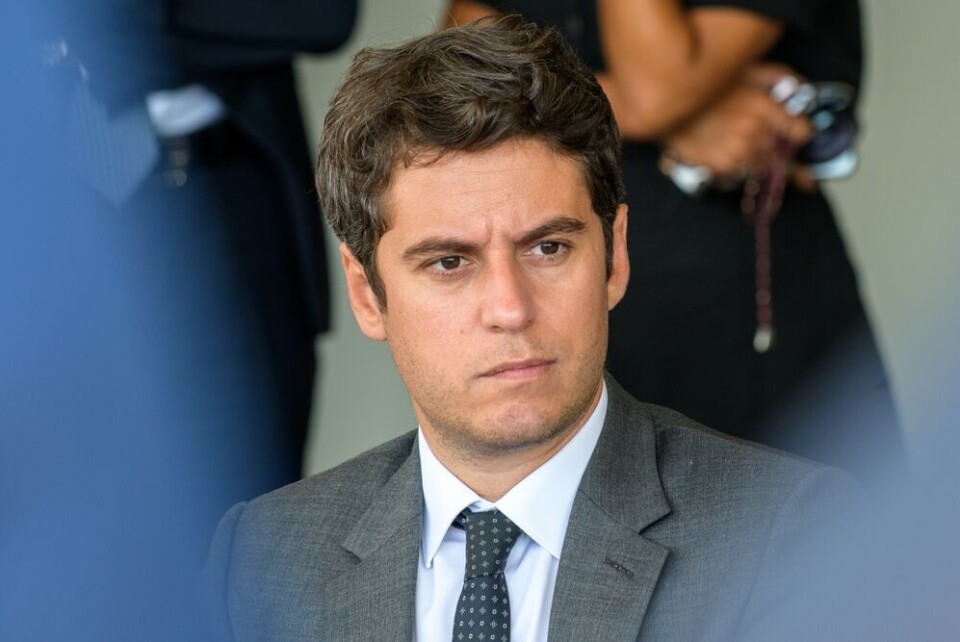-
Rail passenger in France fined €200 for playing music aloud on phone
On-the-spot fine was increased after passenger initially refused to pay
-
House cracking threat spreads to new areas in France, putting 12 million properties at risk
Map from environment ministry shows more than half of country at risk
-
Hospital fees set to increase in France: how will patients be affected?
Plans to save €400 million from social security spending targets several flat fees
Key points of new French prime minister’s traditional policy address
Gabriel Attal vows to fight bureaucracy and raise the minimum wage. He also criticises the Rassemblement Nationale party for supporting Brexit

Gabriel Attal presented his first major policy speech to the French parliament today (January 30), promising to boost the minimum wage and simplify bureaucracy. We look at the key points of what he said.
French prime ministers are accorded a policy speech at the start of their time in office. For Mr Attal, this comes as France is struck by a major protest by farmers, rising energy bills and a cost of living crisis.
The young prime minister used the address as an opportunity to present a combative and energetic vision that belies his government’s lack of a clear majority and his party’s uncertain future as President Emmanuel Macron enters his last three years in office.
Read more: Tax cuts and foreign doctors: Macron's wishlist to revive France
Echoing President Macron, Mr Attal announced his plans to “rearm” and “revive” France, fight against its creeping bureaucracy and low pay, and to reconcile the protesting farmers.
We summarise the key points of Mr Attal’s speech
On education:
- The return of national service days for young people in 2026
- To allow parents to stay with their children if they are taken into state care
- Community service for delinquent youths
- Commitment to school uniform
- Teachers will decide which pupils have to repeat a school year
- The creation of an “Ecological civic service” for 50,000 young people
On employment:
- Simplify the administrative burdens for business
- Requisition empty offices to make more space for companies
- Public services to test four-day working week in their offices
- Public services to allow cleaning staff to work during normal office hours
On wages:
- Minimum wage reform
- Unspecified measures to ensure working people earn more than the unemployed
On unemployment:
- 15 hours of work to receive the revenu de solidarité active(RSA)
On security:
- File police complaints online
- "End the impunity for drug dealers”
On energy:
- To invest in nuclear energy, which “is the pride of France”
- To open the Flamanville nuclear power plant by the end of the year
On farmers:
- “A French exception for agriculture” - “farmers are models of hard work”
- An emergency fund for vineyards that are in difficulty
- “A wave of checks in supermarkets” to check that the EGalim law is adhered to
On healthcare:
- Increased wages for school nurses
- “When you skip a doctor’s appointment, you will have to pay”
- Experienced nurses can go directly to the third year of medical school
- Residency cards for doctors who work in France
- Reform state medical aid (AME) before the summer
- To reinforce palliative care units and study a bill on assisted dying "before the summer"
On taxes:
- €2billion of tax cuts for the middle classes
- Reform social security contributions for self-employed workers
The prime minister also used the address to attack the Rassemblement Nationale (far-right), pointing out that of all the major parties in France, it was the only one that championed Brexit.
“The last steel works in Great Britain closed last week,” said Mr Attal in a pointed attack against Marine Le Pen’s party. “But here in France they are reopening and industry is returning thanks to European investment!”
Mr Attal concluded his address by noting that “only ten years ago our country was tearing itself apart over the question of gay marriage… but to be French in 2024 means being able to become prime minister and be a homosexual.”
“I know that the French people will not excuse failure”, he added, “But nothing can resist the will of the French people. In France everything is possible”.
Read more:
France’s new PM: The key difference in coverage in France and the US
























